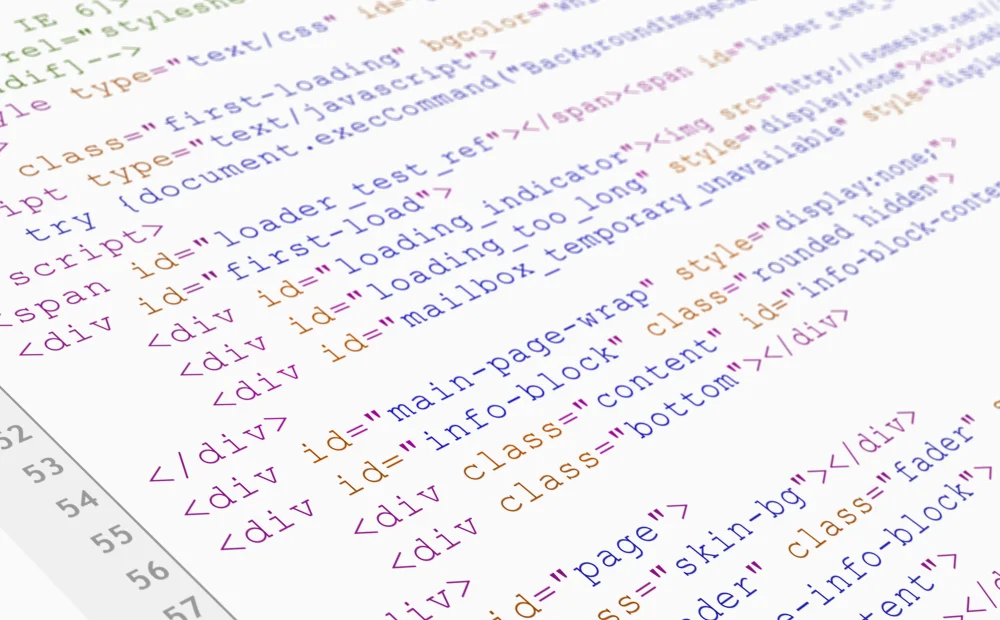Introduction to Frontend Coding
Are you ready to take your coding skills to the next level? Frontend coding may seem like a daunting challenge, especially for beginners. But fear not! In this blog post, we will explore some of the most common challenges faced by frontend developers and provide you with practical tips and tricks to overcome them. From mastering HTML and CSS to understanding JavaScript, utilizing frameworks and libraries, and advancing your skills through projects and practice – we’ve got you covered. So grab your keyboard, put on your coding hat, and let’s embark on a journey from beginner to pro in frontend coding!
Common Frontend Coding Challenges Faced by Beginners
Starting out in frontend coding can be both exciting and overwhelming. As a beginner, you may encounter various challenges that can hinder your progress. Let’s explore some of the common hurdles that beginners often face when diving into frontend coding.
One challenge is understanding the fundamentals of HTML and CSS. These markup languages form the building blocks of web development, but their syntax and structure can be confusing at first. It takes time to grasp concepts like tags, selectors, and positioning elements on a page.
Another hurdle is getting to grips with JavaScript. While HTML and CSS handle the structure and presentation of a website, JavaScript adds interactivity and functionality. Learning how to write clean code in JavaScript requires practice and patience.
Keeping up with the ever-evolving landscape of frameworks and libraries is another challenge for beginners. With new tools emerging regularly, it can be daunting to choose which ones to learn or keep up with.
Perhaps one of the biggest difficulties for beginners is finding opportunities to apply their knowledge through projects or practice. Building real-world applications helps solidify concepts learned in tutorials or courses.
Overcoming these challenges requires perseverance, continuous learning, seeking help from online communities or mentors, as well as dedicating time for hands-on practice—ultimately leading towards becoming proficient in frontend coding skills!
Tips and Tricks for Overcoming Frontend Coding Challenges
When it comes to frontend coding, beginners often find themselves facing a variety of challenges. But fear not! With the right tips and tricks, you can overcome these obstacles and become a pro in no time.
One key tip is to start small and build up gradually. Don’t overwhelm yourself with complex projects right from the start. Instead, begin with simple exercises or mini-projects that allow you to practice specific concepts or techniques. This approach will help you gain confidence and gradually expand your skills.
Another helpful trick is to leverage online resources such as tutorials, forums, and communities dedicated to frontend development. These platforms provide a wealth of knowledge and support from experienced developers who are ready to assist you whenever you encounter difficulties or have questions.
Don’t be afraid to experiment! Frontend coding requires creativity, so don’t hesitate to try out different approaches or solutions when faced with a problem. Sometimes thinking outside the box can lead to innovative solutions that others may not have considered.
Additionally, learning how to effectively debug code is crucial for overcoming challenges in frontend development. Take advantage of browser developer tools that allow you to inspect elements, check console logs for errors, and test changes in real-time. Debugging skills will save you countless hours of frustration by helping you identify and fix issues efficiently.
Never underestimate the power of practice. Consistently working on projects – whether personal or collaborative – helps solidify your understanding of frontend coding principles while sharpening your problem-solving abilities. By building real-world applications or contributing to open-source projects, you’ll gain valuable hands-on experience that will push your skills even further.
Remember: becoming proficient in frontend coding takes time and dedication but following these tips and tricks will undoubtedly accelerate your progress along this rewarding journey! So keep pushing forward through those challenges because soon enough they will be nothing more than stepping stones towards mastering the art of frontend development!

Mastering HTML and CSS
Mastering HTML and CSS is an essential skill for any frontend developer. These two languages form the foundation of web development, allowing you to create visually appealing and interactive websites. While they may seem daunting at first, with practice and perseverance, you can overcome the common challenges that come with learning HTML and CSS.
One challenge beginners often face is understanding the structure of HTML. It’s important to grasp the concept of tags and how they define different elements on a webpage. Start by familiarizing yourself with basic tags of HTML
And, as you progress, learn about more advanced tags that provide semantic meaning to your content.
CSS presents its own set of challenges, particularly when it comes to styling elements. Understanding selectors is key in targeting specific elements or groups of elements for styling purposes. Experiment with different properties such as color, font-size, margin, padding, and background-color to customize the appearance of your webpage.
One effective way to enhance your skills in HTML and CSS is by working on small projects. Create simple web pages from scratch or try recreating existing website designs to practice applying your knowledge effectively.
Additionally, stay up-to-date with industry trends by exploring modern techniques like flexbox or grid layout systems which offer more control over page layouts.
Remember that mastering HTML and CSS takes time and patience; don’t be discouraged if you encounter difficulties along the way! With determination and consistent practice, you’ll gradually overcome these challenges and become proficient in creating stunning frontend designs using these foundational languages.
Understanding JavaScript
JavaScript is a fundamental programming language for frontend development. It allows you to add interactivity and dynamic elements to your web pages. However, mastering JavaScript can be a challenge for beginners due to its complexity.
To understand JavaScript, start by learning the basic syntax and data types. This will give you a solid foundation to build upon. Next, dive into concepts such as variables, functions, loops, and conditional statements. These are essential building blocks in JavaScript coding.
One common challenge faced by beginners is understanding how scope works in JavaScript. Variables declared inside a function have local scope and are only accessible within that function unless specifically returned or assigned globally.
Another important concept to grasp is object-oriented programming (OOP). Understanding OOP principles like encapsulation, inheritance, and polymorphism will help you write more efficient and organized code.
Additionally, learning about DOM manipulation is crucial for manipulating HTML elements with JavaScript. The Document Object Model (DOM) represents the structure of an HTML document as objects which can be manipulated using JavaScript methods.
Practice is key when it comes to understanding JavaScript fully. Experiment with small projects or challenges that require implementing various JS features like event handling or form validation.
By continuously practicing and seeking out resources such as tutorials or online courses on specific topics within JavaScript, you’ll gradually gain confidence in your abilities as a frontend developer.
Remember that while understanding the fundamentals of any programming language takes time and effort; don’t get discouraged! With persistence and dedication, you’ll overcome these challenges and become proficient in using Javascript for frontend development.

Utilizing Frameworks and Libraries
Frameworks and libraries play a crucial role in frontend coding, making the development process smoother and more efficient. These pre-written code snippets offer ready-made solutions for common tasks, saving you time and effort. By leveraging frameworks like Bootstrap or Foundation, you can quickly create responsive layouts with built-in components.
Libraries such as jQuery provide powerful tools to enhance interactivity on your website. With just a few lines of code, you can add animations, handle user events, or perform AJAX requests effortlessly. The extensive documentation available for these frameworks and libraries makes it easy to learn their syntax and functionalities.
One key advantage of using frameworks is the consistent structure they provide. They enforce best practices and conventions that ensure a clean codebase across different projects. This not only improves readability but also facilitates collaboration among team members.
However, it’s important to strike a balance when utilizing frameworks and libraries. While they offer convenience, relying too heavily on them may hinder your understanding of core concepts or limit your flexibility in customizing designs. It’s essential to have a solid foundation in HTML, CSS, and JavaScript before jumping into these tools.
Stay up-to-date with new releases and updates in popular frameworks by following official blogs or joining relevant online communities like forums or Slack channels. Engage with other developers who are using similar technologies; this can help expand your knowledge base through shared experiences.
Experimentation is key when working with frameworks and libraries – don’t be afraid to try out different options until you find one that suits your needs best! Remember that each project may require its own unique combination of tools – there isn’t always a one-size-fits-all solution.
In conclusion,
Utilizing frameworks and libraries is an effective way to streamline frontend coding processes while maintaining high standards of quality and efficiency. However, it’s crucial to strike a balance between reliance on external tools versus developing fundamental skills independently. By staying informed about new updates within the frontend development community and continuously experimenting with different frameworks, you can overcome challenges and
Advancing Your Skills with Projects and Practice
One of the most effective ways to overcome frontend coding challenges is by advancing your skills through projects and practice. While learning the basics of HTML, CSS, and JavaScript is essential, it’s putting that knowledge into action that truly solidifies your understanding.
Projects provide a hands-on approach to learning. They allow you to apply what you’ve learned in real-world scenarios, helping you gain practical experience and problem-solving skills. Start small with simple projects like building a personal portfolio website or creating a basic landing page. As you progress, challenge yourself with more complex projects that incorporate different technologies and functionalities.
Practice is key when it comes to mastering frontend coding. Set aside dedicated time each day or week to work on coding exercises or challenges. Websites like Codecademy and FreeCodeCamp offer interactive lessons and coding tasks that can help sharpen your skills.
Consider joining online communities or forums where developers share their work and offer feedback. Collaborating with others not only allows for valuable networking opportunities but also exposes you to different perspectives and approaches in frontend development.
Don’t be afraid to experiment with new techniques or technologies while working on projects or practicing coding exercises. Pushing outside of your comfort zone will stretch your abilities and deepen your understanding of frontend development.
Remember that becoming proficient in frontend coding takes time, patience, and perseverance. Embrace the process of continuous learning as technology evolves rapidly in this field. Stay up-to-date with industry trends by following relevant blogs, attending webinars or conferences, watching tutorials, etc.
By consistently challenging yourself through various projects and regular practice sessions, you’ll gradually overcome common frontend coding challenges while honing your skills as a developer.
Conclusion
In this journey from beginner to pro in frontend coding, you have learned about the common challenges faced by newcomers and discovered various tips and tricks to overcome them. Remember, mastering HTML and CSS is fundamental for building websites with beautiful designs and layouts.
Understanding JavaScript will take your skills to the next level, enabling you to add interactivity and dynamic functionality to your web pages. And don’t forget the power of frameworks and libraries like React or Angular, which can streamline your development process and enhance productivity.
However, becoming a true pro requires more than just theoretical knowledge. It’s essential to put your skills into practice by working on real projects. Building websites or web applications from scratch will not only solidify your understanding but also showcase your abilities as a frontend developer.
So keep practicing, exploring new technologies, staying updated with industry trends, and pushing yourself out of your comfort zone. The world of frontend coding is constantly evolving, so never stop learning.
Remember that every challenge you face is an opportunity for growth. Embrace those challenges head-on, seek help when needed, join online communities or forums where you can learn from others’ experiences.
With dedication, perseverance, continuous learning,and application of best practices,you too can become a proficient frontend coder capable of tackling any challenge that comes your way!
Now go forth with newfound confidence in overcoming frontend coding challenges! Happy coding!

